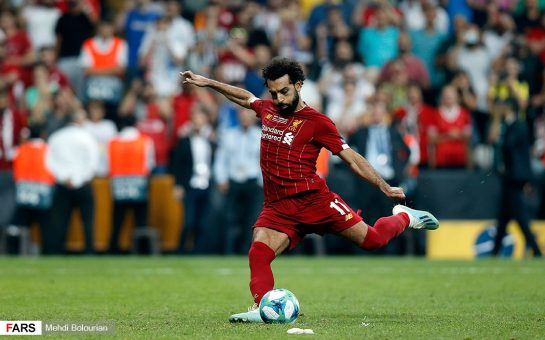It was 47 years ago today the English national football team reached the pinnacle of the game – winning the World Cup final 4-2 at Wembley against West Germany.
Since the 1966 glory there has been a yearning for success at international level resulting in a series of agonising and, occasionally embarrassing, disappointments.
Nearly half a century after Bobby Moore’s iconic lifting of the Jules Rimet trophy, Mancunian Matters looks at why glory in the international footballing arena has eluded the game’s desperate creator.
Media intensity surrounding the English national team usually means that the blame for poor tournament performances is laid at the manager’s door.
However, England suffer from a series of systemic issues that cripple their ability to make significant progress in international tournaments.
The first problem is that, compared to a nation like Germany, England is being dwarfed in coaching numbers.
According to Uefa, and reported in the Guardian in May, Germany has a staggering 28,400 coaches with the B licence; England has a measly 1759. The Germans also have 5,500 A licenced coaches compared to England’s 895.
The Pro licence is the highest of Uefa’s coaching badges and Germany has 1070 with the qualification. England has 115.
These numbers are a damning indictment to the condition, and foreseeable trajectory, of English football.
In the three World Cups since 2002 Germany finished runners-up once and twice finished third.
Comparatively, England have reached two quarter finals and, most recently, the round of sixteen – in which they were soundly beaten by Germany.
Germany has 30million more people than England and this must be taken into account when measuring national success; however, England are clearly failing to provide a widespread network of high level coaches to develop young talent.
Many have cited the influx in foreign talent since the emergence of the Premier League, and the riches it offers, as a major reason for a lack of international success.
However, Richard Scudamore, chief executive of the Premier League, has vehemently denied these accusations stating the FA should look at themselves before pointing the finger elsewhere.
“The whole thing seems to me that if England don’t win something it is someone else’s fault,” he said.
“I have never, in my 15 years with the Premier League, never said the Premier League’s success, or lack of, is someone else’s fault.
“You have to make it yourself.”
Scudamore continued and pointed to the fact that the Premier League only started in 1992 and that, between 1966 and 1992, the same lack of success plagued the national side.
“We have not won the World Cup since 1966. We didn’t start until 1992. What happened between 1966 and 1992? Whose fault was that?”
Scudamore is right to point to the prior lack of success and, the fact is, when England produce high calibre players they are generally given the opportunity to perform at club level.
If you look at Manchester United’s infamous ‘class of 1992’ then it is clear that young English players who are good enough will get the opportunity to perform.
Of that class David Beckham, Paul Scholes, Gary Neville, Phil Neville, and Nicky Butt were all English Champions League winners who provided over a decade of international service.
The problem is that players of that calibre are incredibly rare and the system is not in place to scout for them and provide them with high level coaching.
The FA should, therefore, focus on the positive development of coaches instead of simply blaming clubs and the Premier League for importing talent.
David Bernstein, the chairman of the FA, has stressed that clubs need to stop buying foreign players.
However, the problem originates from the lack of development which means that, in order for clubs to compete at the highest level, they must look abroad for the best players.
As well as the problems at the base level of English football there is also a naïve attitude to the selection process and development of a national team.
At Premier League level a season will last a minimum of 38 games, with extra for games depending on cup runs. For instance, Manchester United played 60 games last season including pre-season friendlies.
The large amount of games means that the team was able to develop cohesion and consistency over the course of the year.
In the same period England played 11 games. The problem, however, isn’t that England don’t play enough games; the problem is that the National Team is stuck in a club calendar with an international mind-set.
This should be reversed. Firstly, the national team should consider their season as a minimum of two years long – the period between international tournaments.
With the mind-set of a two-year season, the national team would focus on the development on a strong team that had played together consistently for a long period.
Adding to this the national team should possess the attitude towards squad selection that a club would.
A club begins a season with a relatively small squad and must compete with that same squad for the whole season, only making significant changes during January.
At the end of an international tournament, a group of players should be selected for the national side that will continue on to the next tournament.
It is obvious that tweaks would need to be made but, for the most part, a squad should stay the same over a two-year period in order to develop into a functioning team.
Club form is born out of consistent training with the same players. This is not a secret formula. This is how any sports team reaches the highest level.
However, national media pressure and naïve management make this impossible for the national team.
There is often pressure for the national manager to call up certain players who happen to be performing well at the time.
For example, Leon Osman, at the age of 32 has recently received two international caps. Leon Osman is a good player but the fact is that bringing players like him into the squad when, realistically, he is not good enough to be part of next year’s World Cup is detrimental to the overall cohesion of the England squad.
The national set-up, it seems, has begun a long process of overhauling its structure in order to adapt to the modern game.
However, until the archaic, amateurish and sometimes laughable approaches to achieving success on the field are resolved then England will continue to be a ‘quarter-final team’.
Similarly, the deep-set developmental problems at the very root of the national game continue to illuminate the ineptitude among the FA hierarchy.
While recent developments, including the St George’s park complex, are a step in the right direction, it will be a long and arduous process until the England national team are anywhere near the final of an international tournament.
Image courtesy of TSN via YouTube, with thanks.
For more on this story and many others, follow Mancunian Matters on Twitter and Facebook.



